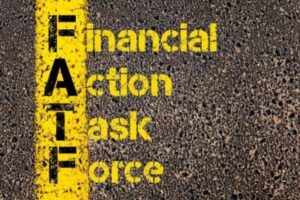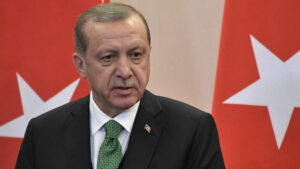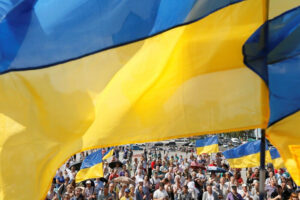
The Interdepartmental Commission on International Trade (ICIT) will review anti-dumping measures against imports of cement from Russia, Belarus and Moldova to Ukraine due to their expiration.
According to a report in the Uryadovy Courier dated May 22, 2024, the anti-dumping duties previously in force by the decision of the ICIT dated May 21, 2019, are extended for the duration of the review procedure.
It is noted that the Commission considered the relevant request for review from PrJSC “Dickergoff Cement Ukraine”, PrJSC “Ivano-Frankivsk Cement” with the support of PrJSC “Kryvyi Rih Cement”, and also studied the report of the Ministry of Economy on the results of the anti-dumping procedure for the review of customs duties due to the expiration of their validity.
“The request contains sufficient evidence that the termination of anti-dumping measures against imports into Ukraine of cement originating in the Russian Federation, the Republic of Belarus and the Republic of Moldova, applied by the Commission’s decision of 21 May 2019, is likely to lead to the resumption of dumping and injury,” the ICIT said in a statement.
The Ministry of Economy has been entrusted with the review of anti-dumping measures. Stakeholders are to register within 30 days.
According to Alyona Omelchenko, Partner and Head of International Trade Practice at Ilyashev & Partners Law Firm, who represented the interests of Ukrainian cement producers, the review process may take up to one year.
“This decision of the Commission is extremely important for the work of Ukrainian enterprises. The initiation of the review of anti-dumping measures by the ICIT will extend the period of application of duties and prevent dumped imports from entering the market until the final decision is made,” Omelchenko said in a press release.
As reported, in 2019, the ICIT applied anti-dumping duties on imports of cement clinkers and Portland cement to Ukraine under codes 2523 10 and 2523 29 at the level of 57.03% for cement from Belarus; 94.46% for cement from Moldova; 114.95% for cement from Russia. The duties were set for a period of five years.

President of Ukraine Volodymyr Zelenskyy has said that Ukraine and its partners do not consider the possibility of Russian representatives attending the inaugural Peace Summit to be held in Switzerland.
“Today we talked a lot about our Formula for Peace. I am grateful for the support of Mr. President. I informed Mr. President about the preparation of the global Peace Summit at the level of leaders, which is being organized in Switzerland – the inaugural Peace Summit,” he said during a press conference with the Turkish President in Istanbul.
According to Zelenskyy, “it is obvious that Turkey’s special role deserves to be demonstrated at the Peace Summit and in the joint work of the world majority to fully implement the Peace Formula.”
“As for the format of the inaugural Summit itself, we do not see any representatives of Russia at this Summit. We do not see how people who block, destroy and kill everything can be invited. We want to get a result. The result of a just peace, and a just peace for Ukraine,” the President of Ukraine said.
Therefore, Zelenskyy noted, “first, the civilized countries of the world will develop a detailed plan and have a result (based on the results of the first Peace Summit – IF-U).”
“And only then will they involve representatives of Russia – those who will be ready for a just peace,” he concluded.
Earlier, during a press conference with Zelenskyy, Turkish President Recep Tayyip Erdogan said that Turkey was ready to host a peace summit, but with the participation of Russia.

Turkish President Recep Tayyip Erdogan has said that Turkey is ready to host a peace summit with Russia.
“From the very beginning, we have been contributing to ending the war through negotiations. We are ready to host a peace summit that will include Russia,” he said on Friday in Istanbul after talks with Ukrainian President Volodymyr Zelenskyy.
Erdogan emphasized that “we support the territorial integrity, sovereignty and independence of our strategic partner, Ukraine.”
“Unfortunately, the war is having an increasingly negative impact regionally and globally, and primarily on Ukraine. No diplomatic steps have been taken to use the negotiating table we built in Istanbul in March 2022 to establish peace,” he said.
The Turkish President also expressed his readiness to support new agreements on grain exports.
According to him, “the entry into force of the free trade agreement as soon as possible will undoubtedly give impetus to the development of our relations.”
Erdogan noted that “the existence of Crimean Tatars in Ukraine is one of the most important factors in strengthening friendship between the two countries. The Crimean Tatars, who are an integral part of Ukraine, are selflessly fighting for the restoration of Ukraine’s territorial integrity.”
“In the future, on the one hand, we will stand in solidarity with Ukraine, and on the other hand, we will continue our work to end the war with a just peace based on negotiations,” he said.

The FATF (Financial Action Task Force) at its plenary session on October 25-27 in Paris once again ignored Ukraine’s call to include Russia in the list of high-risk jurisdictions – the so-called “black list”.
“The suspension of Russia’s membership remains in force. Following the statements issued since March 2022, the FATF reiterates that all jurisdictions should be vigilant about the ongoing risks associated with circumventing measures taken against the Russian Federation to protect the international financial system,” the final communiqué reiterates the organization’s position on Russia.
The FATF has also updated the “gray” list of countries that are under enhanced monitoring for money laundering and terrorist financing.
The organization removed Albania, Cayman Islands, Jordan and Panama from the gray list and added Bulgaria to it.
The list also includes Barbados, Burkina Faso, Haiti, Gibraltar, the Democratic Republic of the Congo, Yemen, Jamaica, Mali, Mozambique, Nigeria, the United Arab Emirates, Senegal, South Sudan, Syria, Tanzania, Turkey, Uganda, the Philippines and South Africa.
At the same time, the FATF left the blacklist unchanged. It includes countries that require countermeasures, such as the DPRK and Iran, and countries that require enhanced due diligence commensurate with the risks (Myanmar).
Among the main outcomes of the plenary session, the FATF agreed to publish a key report on crowdfunding for terrorist financing. Members also agreed to amend FATF Recommendation 8 to clarify the measures applicable to NPOs. The FATF will also scale up its work on criminalizing terrorist financing in countries (Recommendation 5).
FATF members recognized the need for full and effective implementation of the FATF Standards in all jurisdictions. This includes the analysis and exchange of financial information on terrorist financing networks, as well as the use of financial and law enforcement tools, such as financial sanctions and confiscation, to cut off terrorists from their sources of revenue and weaken the infrastructure that these groups need to achieve their destructive goals. This also includes the designation of identified terrorists and terrorist groups in accordance with relevant UN Security Council resolutions.
In an important milestone, the press release notes, delegates also agreed on a significant set of amendments to the FATF Recommendations that will provide countries with a much more powerful toolkit of measures to deprive criminals of the proceeds of crime. To further improve global asset recovery efforts, the FATF also published a report that sets out recommendations for strengthening the role and use of Asset Recovery and Investigation Networks (ARINs) in investigating transnational money laundering cases.
The FATF also approved reports on illicit financial flows resulting from cyberspace fraud and the misuse of citizenship and residence permits through investment programs, the report said.
Following recent amendments to the beneficial ownership and transparency standards, delegates also agreed to release for public comment an updated risk-based FATF Guidance on Recommendation 25 on beneficial ownership and transparency of legal arrangements.

Turkish President Recep Tayyip Erdogan may visit Russia to discuss with his Russian counterpart Vladimir Putin the extension of the Black Sea Grain Initiative, Yeni Şafak reported on Tuesday, citing sources in the administration of the Turkish president.
According to the publication, “the upcoming visit of President Erdogan to Russia is of critical importance for the deal.” The estimated dates of the trip are not named.

The overwhelming majority of residents of all regions of Ukraine express a negative attitude towards the Russian Federation, according to the results of a sociological survey conducted by the Razumkov Center sociological service.
“Negative attitude is most often expressed towards Russia (94%), Belarus (81%), Iran (73.5%), China (60%), Hungary (46.5%). Negative attitudes towards Russia are expressed by the vast majority of residents of all regions – from 90% of the eastern region to 97% of the central region,” reads the press release on the results of the survey.
The researchers also specify that 95.5% of those who communicate mainly in Ukrainian at home have a negative attitude towards Russia and 88% of those who communicate in Russian.
At the same time, according to the results of the poll, only 2% of respondents express a positive attitude to citizens of the Russian Federation, 77% express a negative attitude and 14% express a neutral attitude.
“Positive attitude to citizens of Russia is expressed by 4% of residents of the eastern and southern regions, 2% of residents of the central region and 0% of residents of the western region. Negative attitude is expressed by 70%, 56.5%, 80% and 84%, respectively. Among those who communicate primarily in Ukrainian at home, a positive attitude towards citizens of Russia is expressed by 0.6%, among those who communicate in Russian – 5%, negative attitude – 82% and 59.5%, respectively,” – indicate the Razumkov Centre.
In addition, the vast majority (97%) of respondents have a negative attitude towards the government and the Russian State Duma.
At the same time, Ukrainians more often express a positive attitude towards Poland (94%), Great Britain (91%), Lithuania (91%), Estonia (90%), Latvia (90%), Canada (90%) and the Czech Republic (88%), The USA (88%), Netherlands (86%), France (86%), Germany (85%), Moldova (82,5%), Slovakia (82,5%), Israel (75%), Japan (74%), Turkey (72,5%), Georgia (70%), Romania (69%), Armenia (66%), Azerbaijan (65%). The relative majority (46%) have a positive attitude towards India.
The sociological service of the Razumkov Center conducted a sociological survey “Orientations of Ukrainian citizens in foreign policy, assessments of government foreign policy and attitudes toward foreign states and politicians” on February 22 – March 1, 2023, in the framework of MATRA program, financed by the Embassy of the Kingdom of the Netherlands in Ukraine.
The face-to-face survey was conducted in all regions of Ukraine, except for the temporarily occupied territories of Donetsk, Zaporizhzhia, Luhansk, Kharkiv and Kherson regions, Crimea and territories where hostilities are taking place.
Representatives of the Razumkov Center’s social service interviewed 2020 respondents aged 18 years and older. The theoretical sampling error does not exceed 2.3%. At the same time, additional systematic sampling deviations may be due to the consequences of the Russian aggression, in particular, the forced evacuation of millions of citizens.